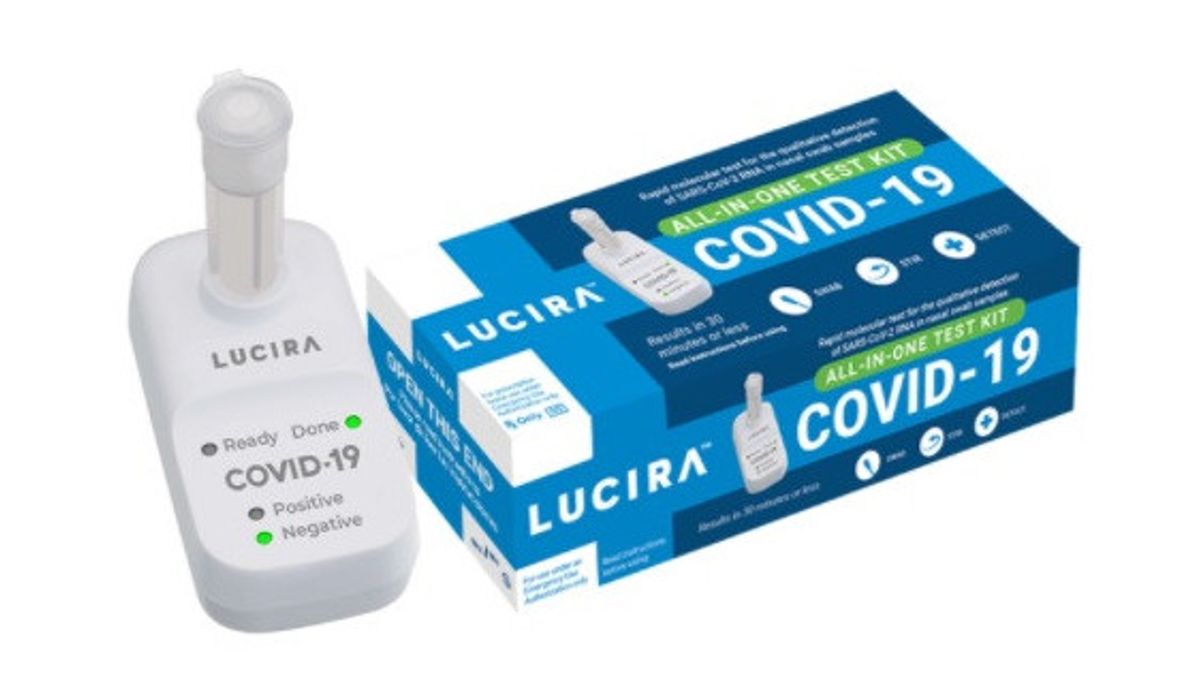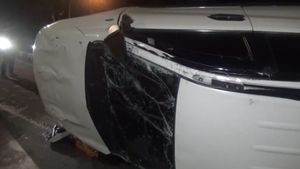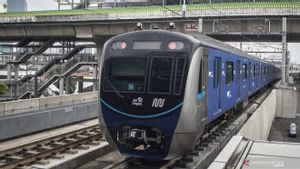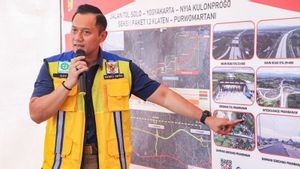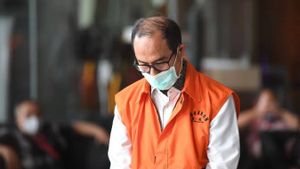JAKARTA - The South Korean Health Authority plans to increase testing capabilities, amid the increasing cases of COVID-19. The plan is for South Korea to use a standalone COVID-19 test kit.
The Korea Disease Control and Prevention Agency (KDCA) held a meeting with quarantine experts on Friday to thoroughly discuss the possibility of using a self-diagnostic tool.
The test kit in question is a COVID-19 test kit made by Lucira Health. Can be used at home, this test kit does not require assistance from medical personnel for its use.
"Discussions will be held about the need, legitimacy and accessibility of kits as well as monitoring the situation of other countries where the devices are used. We will find ways to strengthen our quarantine capacity by using all the tools and means available for this," said KDCA official Kwon Jun. wook, launched the Korea Times.
But he underlined that the meeting did not imply the government would immediately introduce a home testing kit, which would allow residents to take their own samples and get results in a matter of minutes.
Health authorities have shown caution about rapid COVID-19 diagnostic kits. Because, its relatively low accuracy can increase confusion. And, people may have difficulty collecting their own samples accurately via nasal swabs.
Self-testing kits are less sensitive than PCR (polymerase chain reaction) tests and more susceptible to false negatives. While the PCR test can detect infection with even a small amount of virus in the body, a rapid test requires a larger viral load to make a reliable diagnosis.

Several countries including Germany and the UK have approved the use of home testing kits. The United States launched a four-week pilot program Wednesday to see if widespread use of rapid tests was effective in slowing the spread of the virus.
Residents in two states, North Carolina and Tennessee, can test themselves three times a week for a month with a free rapid antigen test kit. The accuracy of the device is reported to be around 85 percent, and results are available in 15 minutes.
Local medical experts show different views on this method. Some questioned its efficacy, while others suggested it was important for Korea to expand its testing capacity to curb the rapid spread of the virus.
Jacob Lee, professor of infection medicine at Hallym University Medical Center, wrote on Facebook: "Some people insist on increasing the number of tests because strengthening social distancing seems difficult for now. But tightened social distancing measures must be put in place before implementing a diagnosis kit yourself. which has not been fully scientifically verified ".
Ki Mo-ran, professor of preventive medicine at the National Cancer Center, has called for its use from an early stage. He said it was time for the country to introduce a new approach to testing for COVID-19.
"We cannot expect any increase in our quarantine capacity without a new approach. Now is the time to drastically increase the number of tests, which can be achieved by allowing people who cannot be present at the test site to extract their own samples," he said during a recent interview. this with local media outlet TBS.
South Korea's daily new COVID-19 infection cases have surpassed 500 for the third day in a row on Thursday, raising fears of a fourth major wave of infections.
Prime Minister Chung Sye-kyun expressed concern, calling this perhaps the beginning of a new wave.
"At the start of the third wave of infections last winter, the number of daily cases of 500-something quickly doubled in just five days," he explained during a routine meeting on COVID-19 response measures.
The English, Chinese, Japanese, Arabic, and French versions are automatically generated by the AI. So there may still be inaccuracies in translating, please always see Indonesian as our main language. (system supported by DigitalSiber.id)
